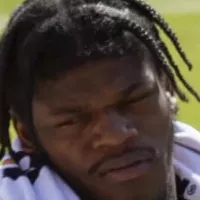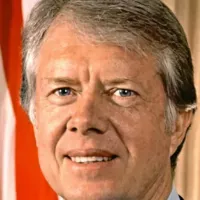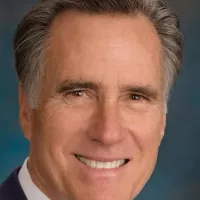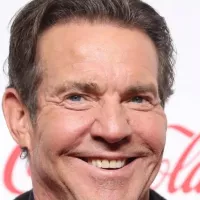Kentucky, officially the Commonwealth of Kentucky, is a state located in the Southeastern United States. It is bordered by seven states and the Ohio River. Its capital city is Frankfort, and its largest city is Louisville. As of 2020, Kentucky's population was about 4.5 million.
January 30, 1900: Assassination of Governor William Goebel
On January 30, 1900, Kentucky Governor William Goebel was assassinated while walking to the State Capitol in Frankfort. Goebel was in a heated contest for the governorship with William S. Taylor, and their dispute went to the Supreme Court. Goebel's assassination makes him the only U.S. governor to have been assassinated while in office.
1900: Kentucky Population Trends
Since 1900, Kentucky witnessed a demographic shift with rural counties experiencing a net population loss exceeding one million due to migration, while urban areas showed a slight net gain.
1904: Segregation at Berea College
In 1904, a state law was passed in Kentucky that mandated segregation, bringing an end to Berea College's practice of admitting both Black and white students, a tradition it had upheld since its founding in 1855.
1908: Kentucky's Day Law Enacted
Kentucky passed the Day Law in 1908, enforcing racial segregation in schools.
1908: Supreme Court Upholds Segregation at Berea College
The U.S. Supreme Court, in the landmark case of Berea College v. Kentucky in 1908, upheld the constitutionality of the 1904 Kentucky state law that prohibited integration, forcing Berea College to segregate its student body.
1908: The Little Shepherd of Kingdom Come
The first novel to sell a million copies in the United States, John Fox Jr.'s The Little Shepherd of Kingdom Come, was published in 1908.
1914: Louisville's Segregation Ordinance
Louisville enacted a residential racial segregation ordinance in 1914.
1917: Jefferson Davis Memorial Constructed
The Jefferson Davis Memorial, a 351-foot concrete obelisk, was erected in Fairview, Kentucky, the birthplace of the Confederate States of America's president, in 1917.
1917: Supreme Court Strikes Down Segregation Ordinance
The Supreme Court overturned Louisville's 1914 residential racial segregation ordinance in 1917.
1922: Last Time Republicans Controlled the Kentucky House Before 2016
The year 1922 marked a significant moment in Kentucky politics: it was the last time the Republican Party held control of the state House of Representatives until their victory in 2016.
July 28, 1930: Kentucky's Highest Recorded Temperature
On July 28, 1930, Greensburg, Kentucky experienced the state's highest recorded temperature of 114 degrees Fahrenheit.
August 14, 1936: Last Public Execution in the United States
Rainey Bethea was publicly hanged in Owensboro on August 14, 1936, for rape and murder. Issues with the execution led to it becoming the last public execution in the US.
1939: The Renfro Valley Barn Dance
The Renfro Valley Barn Dance, where Renfro Valley's musical heritage began, first started in 1939.
1942: Kentucky Revised Statutes Enacted
In 1942, the Kentucky Revised Statutes (KRS) were enacted to streamline and clarify Kentucky law.
1946: All the King's Men
In 1946, Robert Penn Warren published his novel All the King's Men.
1948: Challenge to Segregated Education
Lyman T. Johnson initiated a lawsuit in 1948 to gain admission to the University of Kentucky, challenging the state's segregated education system.
1948: Kentucky State Police Established
The Kentucky General Assembly established the Kentucky State Police in 1948, creating a statewide law enforcement agency.
1948: The Seven Storey Mountain
Thomas Merton, who lived and wrote most of his books while a monk at the Abbey of Our Lady of Gethsemani, published The Seven Storey Mountain in 1948.
1949: Integration at the University of Kentucky
In 1949, following legal action, approximately 30 African American students were admitted to graduate and professional programs at the University of Kentucky.
1950: Berea College Reintegrates
After the repeal of the segregation law in Kentucky in 1950, Berea College reinstated its policy of integration, welcoming students of all races once again.
1954: Brown v. Board of Education
Following the landmark Brown v. Board of Education decision in 1954, Kentucky began the process of integrating its schools.
1954: The Dollmaker
Harriette Arnow's The Dollmaker was published in 1954.
1960: Wendell Berry's Career
Wendell Berry, a Kentucky author, began his literary career around 1960.
1962: Night Comes to the Cumberlands
Harry Caudill published Night Comes to the Cumberlands in 1962, a book that helped spark the U.S. Government's War on Poverty.
1964: Kentucky's Bellwether Status Begins
From 1964 to 2004, Kentucky consistently voted for the winning presidential candidate.
1964: Kentucky Supports Southern Democrat
Kentucky voted for Lyndon B. Johnson, a Southern Democrat, in the 1964 presidential election.
1966: Kentucky's Civil Rights Act
Kentucky took a significant step toward equality by adopting the first state civil rights act in the South in 1966.
1972: Governor Wendell Ford Introduces Cabinet System
Governor Wendell Ford implemented a cabinet system in Kentucky in 1972 to streamline the state government. This system aimed to consolidate hundreds of government agencies that previously reported directly to the governor's office.
1976: Kentucky Supports Southern Democrat
Kentucky supported Jimmy Carter, a Southern Democrat, in the 1976 presidential election.
1976: US Supreme Court Reinstates Death Penalty
The US Supreme Court reinstated the death penalty in 1976.
1980: Kentucky Ancestry Demographics
Before the "American" ethnic category was available in the census, the most prevalent ancestries reported in Kentucky in 1980 were English (49.6%), Irish (26.3%), and German (24.2%).
1983: 'night, Mother
Marsha Norman, a Kentucky playwright, wrote 'night, Mother in 1983.
1987: My Old Kentucky Dinner Train Commences Operation
The My Old Kentucky Dinner Train, a unique tourist attraction in Bardstown, began operating in 1987. It runs on a 20-mile (30-kilometer) stretch of rail line purchased from CSX.
1988: Careers of Barbara Kingsolver and Bobbie Ann Mason
Both Barbara Kingsolver and Bobbie Ann Mason, Kentucky writers, began their literary careers around 1988.
1989: Kentucky Supreme Court Rules Education System Unconstitutional
In a landmark decision in 1989, the Kentucky Supreme Court declared the state's education system unconstitutional, prompting the General Assembly to pass the Kentucky Education Reform Act (KERA) the following year.
1990: Kentucky Language Demographics
In 1990, 98% of Kentucky residents aged five and above reported speaking only English at home, highlighting the dominance of English in the state.
1990: Population Decline in Ashland, Kentucky
Since 1990, Ashland, Kentucky, experienced a decline in population due to a reduction in its industrial base.
1991: Red Wolf Recovery Program Begins
In 1991, Land Between the Lakes in Kentucky partnered with the U.S. Fish and Wildlife Service to establish the Red Wold Recovery Program, a captive breeding program aimed at increasing red wolf populations.
1992: Kentucky Supports Southern Democrat
Bill Clinton, a Southern Democrat, received Kentucky's vote in the 1992 presidential election.
1992: Jelly's Last Jam
George C. Wolfe, a Kentucky playwright, wrote Jelly's Last Jam in 1992.
1992: Amendments to Kentucky's Constitution Regarding Gubernatorial Succession and Elections
Significant amendments were made to the Kentucky Constitution in 1992 concerning the lieutenant governor's role and gubernatorial elections. One amendment altered the line of succession, stating that the lieutenant governor would only assume the governor's duties if the governor became incapacitated. This replaced the previous provision, where the lieutenant governor took over whenever the governor was out of the state. Another amendment mandated that the governor and lieutenant governor run on a joint ticket, a departure from the previous practice.
January 19, 1994: Kentucky's Lowest Recorded Temperature
On January 19, 1994, Shelbyville, Kentucky experienced the state's lowest recorded temperature of -37 degrees Fahrenheit.
1994: National Corvette Museum Opens
Bowling Green, Kentucky, home to the sole assembly plant for Chevrolet Corvettes, celebrated the opening of the National Corvette Museum in 1994.
1995: One Flea Spare
Naomi Wallace, a playwright from Kentucky, wrote One Flea Spare in 1995.
1996: Kentucky Supports Southern Democrat
Kentucky voted for Bill Clinton, a Southern Democrat, in the 1996 presidential election.
1996: Establishment of the Festival of Faiths
The Center for Interfaith Relations inaugurated the Festival of Faiths in 1996, marking the inception of the first and longest-running annual interfaith festival in the United States.
1997: Kentucky Education Reform
In 1997, the Kentucky Community and Technical College System was established following the enactment of the Postsecondary Education Improvement Act (House Bill 1). This legislation transferred control of most of the state's two-year colleges from the University of Kentucky to the newly formed system.
1997: Elk Reintroduction Program Begins
In the winter of 1997, Kentucky began a program to reintroduce elk to its eastern counties.
1997: Wal-Mart Distribution Center Opens in London
The opening of a Wal-Mart distribution center in London, Kentucky in 1997 brought thousands of jobs to the community and spurred population growth.
March 31, 1998: Lethal Injection Becomes Primary Execution Method
After March 31, 1998, lethal injection became the standard method of execution for capital crimes in Kentucky.
1999: Growth of Kentucky Bourbon Production
Kentucky's bourbon production surged by an impressive 170% between 1999 and 2015, highlighting the industry's remarkable growth.
2000: Population of Huntington-Ashland MSA
As of the 2000 census, the Huntington-Ashland, WV-KY-OH, Metropolitan Statistical Area (MSA), which includes Ashland, Kentucky, had a population of 288,649.
2000: Kentucky Language Demographics
In 2000, 96% of Kentucky residents aged five and above reported speaking only English at home, marking a slight decline from 98% in 1990.
2000: Population of London, Kentucky
In 2000, the population of London, Kentucky was 5,692.
2000: Kentucky's Republican Shift
Kentucky began consistently supporting Republican presidential candidates by significant margins starting in the 2000 election.
2000: Population Growth in Louisville's CSA
Since 2000, over one-third of Kentucky's population growth has been concentrated in the Louisville CSA, highlighting its increasing economic and demographic significance.
2000: Kentucky Native American Population
The 2000 census revealed that approximately 20,000 individuals in Kentucky, representing 0.49% of the state's population, self-identified as Native American.
2001: Careers of Silas House and Maurice Manning
Authors Silas House and poet Maurice Manning, both from Kentucky, began their literary careers around 2001.
December 2002: "It's that friendly" Slogan Unveiled
In December 2002, Kentucky Governor Paul E. Patton introduced a new state slogan, "It's that friendly." The slogan was intended to attract more people to the state by highlighting Southern hospitality. However, it faced criticism from many Kentuckians who found it to be unoriginal and ineffective.
2002: Western Kentucky Hilltoppers Football Championship
Western Kentucky University's football team won the national championship in Division I-AA football (now the Football Championship Subdivision) in 2002.
2003: Formation of Louisville Metro Government
In 2003, the city of Louisville and Jefferson County, Kentucky, merged to form a single metropolitan government, streamlining services and administration.
2004: Kentucky's Railway System
As of 2004, Kentucky had approximately 2,640 miles (4,250 kilometers) of railway tracks. CSX Transportation operated the majority of these tracks, accounting for around 65%. Coal dominated rail freight, constituting 76% of cargo loaded and 61% of cargo delivered.
2004: "Unbridled Spirit" Branding Campaign Launched
In 2004, Governor Ernie Fletcher of Kentucky initiated a branding campaign called "Unbridled Spirit" to enhance the effectiveness of the state's advertising budget, which ranged from $12 to $14 million.
2004: End of Kentucky's Bellwether Streak
Kentucky voted for the winning presidential candidate from 1964 to 2004.
2004: Cadillac XLR Assembly in Kentucky
The Cadillac XLR, a luxury roadster, was assembled in Kentucky between 2004 and 2009, contributing to the state's automotive manufacturing industry.
2005: Supreme Court Rules on Ten Commandments Displays
In 2005, the Supreme Court ruled in McCreary County v. ACLU of Kentucky that displaying the Ten Commandments in the Whitley City courthouse was unconstitutional. Later that year, the Sixth Circuit Court of Appeals ruled in ACLU of Kentucky v. Mercer County that a display including the Ten Commandments alongside other historical documents in the Mercer County courthouse was permissible.
January 1, 2006: Repeal of Kentucky Intangible Tax
Effective January 1, 2006, Kentucky abolished the tax levied on intangible personal property held by taxpayers on January 1st of each year. This repeal, enacted through House Bill 272, removed the tax on assets like bonds, notes, accounts receivable, trusts, and other intangible holdings.
August 27, 2006: Comair Flight 191 Crashes at Blue Grass Airport
On August 27, 2006, tragedy struck Blue Grass Airport when Comair Flight 191, also operating as Delta Air Lines Flight 5191, crashed, resulting in the loss of 47 passengers and 2 crew members. The sole survivor was First Officer James Polehinke, who sustained brain damage and had no memory of the accident.
November 22, 2006: Tolls Removed from Kentucky Parkways
On November 22, 2006, Kentucky Governor Ernie Fletcher made a significant decision to eliminate tolls on the William H. Natcher Parkway and the Audubon Parkway, the final two toll roads in the state.
June 2007: Speed Limit Increase on Kentucky's Rural Interstates and Parkways
In June 2007, a new law came into effect in Kentucky, increasing the speed limit from 65 to 70 miles per hour (105 to 113 kilometers per hour) on rural sections of Interstates and parkways.
2007: Louisville Cardinals Win Orange Bowl
The University of Louisville's football team won the Orange Bowl in 2007.
February 2008: Abraham Lincoln Bicentennial Celebration
Hodgenville, Kentucky, Lincoln's birthplace, hosted the launch of the National Abraham Lincoln Bicentennial Celebration in February 2008.
2008: Kentucky Loses Bellwether Status
Kentucky lost its bellwether status in 2008 when it supported John McCain, who lost the national election.
2009: Elk Reintroduction Program Reaches Goal
By 2009, Kentucky's elk reintroduction program had reached its goal of 10,000 animals, creating the largest elk herd east of the Mississippi River.
2009: Western Kentucky Hilltoppers Transition to FBS
In 2009, Western Kentucky University completed its transition to Division I FBS football.
2009: Record Number of Wild Turkeys Hunted
In the spring of 2009, Kentucky hunters reported a record 29,006 wild turkeys taken during the 23-day hunting season, a testament to the success of the state's wild turkey reintroduction efforts.
May 2010: Opening of Army Human Resource Center of Excellence
May 2010 marked the opening of the Army Human Resource Center of Excellence at Fort Knox, Kentucky. This massive complex, the largest office building in the state, employed approximately 4,300 individuals, both military and civilian.
2010: Kentucky Bend Population
As of 2010, the population of Kentucky Bend, a small exclave of Kentucky surrounded by Missouri and Tennessee, was 18 people.
2010: Kentucky Public School Enrollment
At the start of the 2010-2011 academic year, Kentucky's public schools had a total enrollment of approximately 647,827 students.
2010: Population of London, Kentucky, Increases
By 2010, London, Kentucky had experienced significant population growth, reaching 7,993 residents, largely attributed to the establishment of a Wal-Mart distribution center in 1997.
2010: Population of Ashland Stabilizes
By 2010, the population of Ashland, Kentucky had stabilized, with the medical service industry becoming a more prominent part of the local economy. At that time, over 21,000 people resided within Ashland's city limits.
2010: Kentucky's Role in U.S. Electricity Production
In 2010, Kentucky played a crucial role in U.S. electricity generation, with 24% of the nation's electricity reliant on either enriched uranium from the Paducah Gaseous Diffusion Plant or coal extracted from the state's coalfields.
2010: Previous Kentucky Census
The 2010 United States Census serves as a comparison point for the 2020 census data, indicating a population increase in Kentucky during that period.
2010: Largest Native American Tribes in Kentucky
The 2010 census provided data on the largest Native American tribes residing in Kentucky.
2010: Kentucky Religious Demographics
The Association of Religion Data Archives (ARDA) provided data on Kentucky's religious composition in 2010 based on the state's 4,339,367 residents.
2011: Decline in Kentucky Coal Employment
Kentucky's coal industry experienced a significant decline with employment in the sector plummeting by over 50% between 2011 and 2015.
2011: Ohio Valley Wrestling and TNA
Ohio Valley Wrestling became the primary developmental territory for Total Nonstop Action Wrestling (TNA) in 2011.
2011: Kentucky State Government Debt
The Institute for Truth in Accounting estimated in 2011 that the Kentucky state government's liabilities surpassed its available assets by $26,300 for every taxpayer, placing the state fifth in the nation for the highest such debt burden.
2011: NASCAR Cup Series at Kentucky Speedway
The NASCAR Cup Series began racing at the Kentucky Speedway in Sparta, Kentucky in 2011.
2012: Elliott County's Democratic Streak Ends
Elliott County, Kentucky, ended its long streak of voting for Democratic presidential candidates in 2012.
2012: New Business Investment in Kentucky
In 2012, Kentucky attracted nearly $2.7 billion in new business investment, resulting in the creation of more than 14,000 new jobs, according to the Kentucky Cabinet for Economic Development.
2012: Kentucky Export Record
Kentucky achieved a record-breaking $22.1 billion in exports in 2012, with its products and services reaching 199 countries worldwide.
2012: Romney Wins Kentucky, Loses Nationally
Mitt Romney won Kentucky in the 2012 presidential election while losing the national vote.
2012: Bengals Move Training Camp
The Cincinnati Bengals announced they would no longer hold their summer training camp at Georgetown College in 2012.
2013: Kentucky Ancestry Demographics
According to the U.S. Census Bureau, the largest ancestry group in Kentucky in 2013 was American, comprising 20.2% of the population.
2013: Louisville Cardinals Win Sugar Bowl
The University of Louisville's football team won the Sugar Bowl in 2013.
2013: End of Ohio Valley Wrestling and TNA Partnership
The partnership between Ohio Valley Wrestling and Total Nonstop Action Wrestling (TNA) ended in 2013.
2014: Kentucky's Stance on Abortion
A 2014 Pew Research Center poll revealed that a majority of Kentucky's population (57%) believed abortion should be mostly illegal.
2014: Kentucky Affordability Ranking
In 2014, Kentucky earned recognition as the most affordable state to live in within the United States.
2014: Louisville's Big Four Bridge Opens as Pedestrian Bridge
In 2014, Louisville's Big Four Bridge underwent a transformation, reopening as a pedestrian bridge with the completion of its Indiana approach ramps. This development created the second-longest pedestrian-only bridge globally.
2014: Louisville City FC Announcement
Louisville City FC, a professional soccer team, was announced in 2014.
2015: Kentucky Foreign-Born Population
As of 2015, Kentucky had approximately 149,016 foreign-born residents, constituting 3.4% of the state's population.
2015: Growth of Kentucky Bourbon Production
Kentucky's bourbon production surged by an impressive 170% between 1999 and 2015, highlighting the industry's remarkable growth.
2015: Decline in Kentucky Coal Employment
Kentucky's coal industry experienced a significant decline with employment in the sector plummeting by over 50% between 2011 and 2015.
2015: Kentucky Gubernatorial Election
Kentucky, one of only five states that elect their state officials in odd-numbered years, held its gubernatorial election in 2015.
2015: Louisville City FC Debut
Louisville City FC made its debut, playing home games at Louisville Slugger Field, in 2015.
July 1, 2016: Kentucky Population Estimate
On July 1, 2016, Kentucky's estimated population was 4,436,974, reflecting an increase of 12,363 from the previous year and a 2.2% rise since 2010.
2016: Trump's Victory in Elliott County
Donald Trump became the first Republican to win Elliott County, Kentucky, in the 2016 presidential election, signifying a shift in the county's political leanings.
2016: Republicans Regain Control of Kentucky House
In 2016, after nearly a century, the Republican Party regained control of the Kentucky House of Representatives, ending a long period of Democratic dominance. This victory gave them supermajorities in both legislative chambers.
2016: End of Partnership Between Louisville City FC and Orlando City SC
The partnership where Louisville City FC served as the official reserve team for Orlando City SC ended in 2016.
2016: Lamar Jackson Wins Heisman Trophy
University of Louisville football player Lamar Jackson won the Heisman Trophy in 2016.
2017: Population of Bowling Green
As of 2017, Bowling Green, Kentucky had a population of 67,067, making it the third most populous city in the state. Its metropolitan area had an estimated population of 174,835, and the combined statistical area, shared with Glasgow, reached an estimated 228,743.
2017: Kentucky Per Capita Income
The per capita income in Kentucky stood at $25,888 in 2017.
2018: Population of Lexington, its Metro Area, and Northern Kentucky
In 2018, Lexington, Kentucky, had a population of 323,780, with its metro area reaching 516,697 and its combined statistical area (including Frankfort and Richmond) totaling 746,310. The Northern Kentucky area, part of the Cincinnati metropolitan area, had 447,457 residents, bringing the combined population of Louisville, Lexington, and Northern Kentucky to 2,402,958.
2018: Population of Louisville and its Metropolitan Area
In 2018, the population of Louisville, Kentucky, was 623,867, while the greater Louisville metropolitan area had a population of 1,298,990. The combined statistical area (CSA), which includes Frankfort and Richmond, had a population of 1,569,112.
2018: West Virginia Teachers' Strike Inspires Kentucky Educators
The 2018 teachers' strike in West Virginia sparked a wave of similar actions across the United States, including in Kentucky, where educators were inspired to fight for better working conditions and increased funding for education.
2019: Kentucky Bourbon Distilleries
By 2019, Kentucky was home to over 50 distilleries dedicated to bourbon production, solidifying its status as a bourbon powerhouse.
2019: Horse Racing's Impact on Kentucky's Economy
In 2019, Keeneland Race Course in Lexington saw a substantial influx of funds during its September Yearling sale, generating $360 million. This event exemplified the significant economic contribution of the horse racing industry to Kentucky.
2019: Tourism in Kentucky Booms
In 2019, Kentucky's tourism industry experienced significant growth, reaching an economic impact of $7.6 billion. The state's attractions, including horse racing events like the Kentucky Derby, bourbon distillery tours, and natural wonders such as Mammoth Cave and Red River Gorge, drew in visitors.
2019: Kentucky Gubernatorial Election
Kentucky, adhering to its quadrennial election cycle, held its gubernatorial election in 2019.
2020: Kentucky's Voting Accessibility Ranked
A 2020 study identified Kentucky as the 8th most difficult state for citizens to vote in.
2020: Kentucky Population Reaches 4,505,836
According to the U.S. Census Bureau, the population of Kentucky in 2020 was 4,505,836, indicating an increase since the 2010 census.
2020: Continuation of Republican Support
Kentucky continued its trend of supporting Republican presidential candidates by a substantial margin in the 2020 election.
2020: Kentucky Gross State Product
Kentucky's total gross state product reached $213 billion in 2020.
2020: End of NASCAR Races at Kentucky Speedway
The NASCAR Cup Series, NASCAR Nationwide Series, and Camping World Truck Series all held their last races at the Kentucky Speedway in 2020.
2021: Kentucky Life Expectancy
In 2021, the life expectancy in Kentucky was recorded at 72.5 years.
July 15, 2022: Republicans Outnumber Democrats in Kentucky
On July 15, 2022, Kentucky announced that it had more registered Republicans than Democrats for the first time in history.
2022: Kentucky Homeless Population Estimate
The U.S. Department of Housing and Urban Development's 2022 Annual Homeless Assessment Report estimated that there were 3,984 homeless individuals in Kentucky.
2023: Population of Jefferson County, Kentucky
As of 2023, the population of Jefferson County, Kentucky, which encompasses the city of Louisville, was 772,144, making it the most populous county in the state.
2023: Launch of Regulated Sports Betting in Kentucky
In 2023, Kentucky introduced a regulated framework for local and online sports betting. The state implemented a tax structure for sportsbooks, with a 9.75% rate for in-person betting and 14.25% for online platforms. In its inaugural two months, this initiative generated $7.94 million in tax revenue.
2023: Kentucky Gubernatorial Election
Kentucky conducted its gubernatorial election in 2023, maintaining its practice of holding elections for these offices every four years in the years preceding Presidential election years.
March 2024: Kentucky Unemployment Rate
As of March 2024, Kentucky's unemployment rate stands at 4.5%.
2024: Juneteenth Becomes a Holiday
Kentucky Governor Andy Beshear declared Juneteenth a holiday in 2024.
Mentioned in this timeline

Donald John Trump is an American politician media personality and...

Bill Clinton served as the nd U S President from...

Lamar Jackson is a professional American football quarterback for the...
World Wrestling Entertainment WWE is a prominent American professional wrestling...

Jimmy Carter the th U S President - was a...

Mitt Romney is an American businessman and former politician He...
Trending

22 minutes ago Dennis Quaid expresses admiration for Donald Trump, discusses political climate in United States.

22 minutes ago Hillary Clinton Addresses Ghislaine Maxwell's Presence at Chelsea's Wedding Amidst Controversy.

22 minutes ago Luciano Darderi Achieves Santiago QF; Predictions for Navone vs Kopriva Match

1 hour ago Toriano Pride Jr. shines at NFL Combine, impressing Vikings potential draft pick.

1 hour ago Rapinoe Reacts to Trump Invite Criticism Amidst Hockey Team's Political Debate.

1 hour ago Townsend vs. Masarova: WTA Austin Quarterfinal Prediction and Masarova's Quarterfinal Entry
Popular

Jesse Jackson is an American civil rights activist politician and...

Susan Rice is an American diplomat and public official prominent...

XXXTentacion born Jahseh Dwayne Ricardo Onfroy was a controversial yet...

Michael Joseph Jackson the King of Pop was a highly...

Barack Obama the th U S President - was the...

Hillary Diane Rodham Clinton is a prominent American politician lawyer...